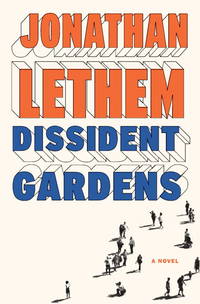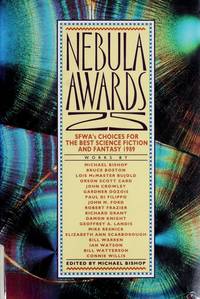Over four decades and thirty books, he has created a body of work that stands among the most admired in modern science fiction and fantasy literature.
Bishop received a bachelor's degree from the University of Georgia in 1967 before going on to complete a master's degree in English. He taught English at the United States Air Force Academy Preparatory School in Colorado Springs from 1968 to 1972, and later at the University of Georgia. Bishop left teaching in 1974 to become a full-time writer.
Bishop has twice been awarded the Nebula: in 1981 for “The Quickening” (Best Novelette) and in 1982 for
No Enemy But Time (Best Novel). He has also received four Locus Awards and his work has been nominated for numerous Hugo Awards. He and British author Ian Watson collaborated on a novel set in the universe of one of Bishop’s earlier works. He has also written two mystery novels with Paul Di Filippo, under the joint pseudonym Philip Lawson. His work has been translated into more than a dozen languages.
Bishop has published more than 125 pieces of short fiction which have been gathered in seven collections. His stories have appeared in such publications as Playboy, Alfred Hitchcock's Mystery Magazine, Ellery Queen's Mystery Magazine, Isaac Asimov's Science Fiction Magazine, the Magazine of Fantasy and Science Fiction, the Missouri Review, the Indiana Review, the Chattahoochee Review, the Georgia Review, Omni, and Interzone.
In addition to his fiction, Bishop has published poetry (gathered in two collections) and won the 1979 Rhysling Award for his poem “For the Lady of a Physicist.” He has also had essays and reviews published in numerous newspapers and magazines, including the New York Times, the Washington Post, the Atlanta Journal-Constitution, the Columbus Ledger-Enquirer, Omni Magazine, and the New York Review of Science Fiction. A collection of his nonfiction, A Reverie for Mister Ray, was published in 2005 by PS Publishing.
He has written introductions to books by Philip K. Dick, Theodore Sturgeon, James Tiptree, Jr., Pamela Sargent, Gardner Dozois, Lucius Shepard, Andy Duncan, Paul Di Filippo, Bruce Holland Rogers, and Rhys Hughes. He has edited six anthologies, including A Cross of Centuries: Twenty-five Imaginative Tales about the Christ, forthcoming from Thunder’s Mouth Press.
In recent years, Bishop has returned to teaching and is writer-in-residence at LaGrange College located near his home in Pine Mountain, Georgia. He and his wife, Jeri, have two children and two grandchildren.
Early Work
Michael Bishop’s first published professional fiction sale was the short story "Piñon Fall" to Galaxy Science Fiction in 1970. It was shortly followed by “If a Flower Could Eclipse,” the first story in his UrNu sequence (which is the only series of related stories in Bishop’s career.) While Galaxy Science Fiction and If magazines were publishing his sf stories, the Magazine of Fantasy and Science Fiction became Bishop’s venue for his slightly off-kilter fantasy/horror stories. This early period is also noted for a number of high profile novellas: in 1973 “Death and Designation Among the Asadi” and “The White Otters of Childhood” appeared on the shortlist ballots for both the Hugo and Nebula awards. The 1974 gonzo novella “On the Street of the Serpents” (including a character named “Michael Bishop”) first appeared in an anthology of original stories. It would eventually lead to a contract for his first novel from Ballantine Books, the anthology’s publisher.
Six of Bishop’s first eight novels are set on other worlds (the other two are the part of his UrNu sequence of stories.) Critic and author John Clute writes that “…his early stories and novels display considerable intellectual complexity, and do not shirk the downbeat implications of their anthropological treatment of aliens and alienating milieux…”[1] In his major essay on these early novels, author Ian Watson writes “Michael Bishop is both an exoticist and a moralist. He is sometimes guilty, in the first respect, of a certain over-writing – underlying exotic venue by exotic diction – though the two become more organically integrated as his work progresses; and in the second respect of what one might call an over-scrupulousness on the part of his characters and his perceived attitude to them… These, however, are merely the consequence of aspiration and conscience; and as more of Bishop’s work has appeared – and his reputation has grown – he has shown…a more coherent melding of exotic vision, ethics and style.



























